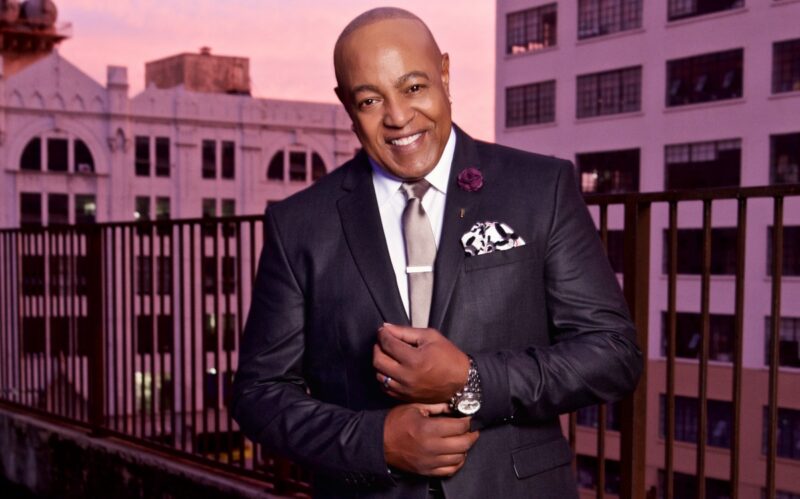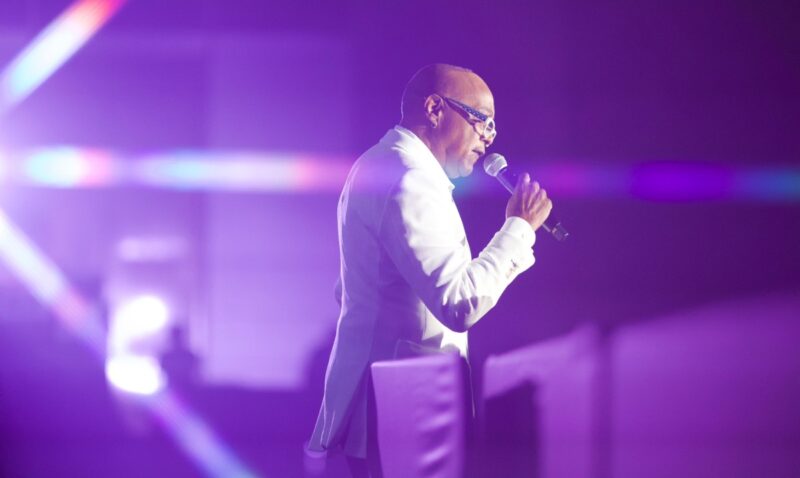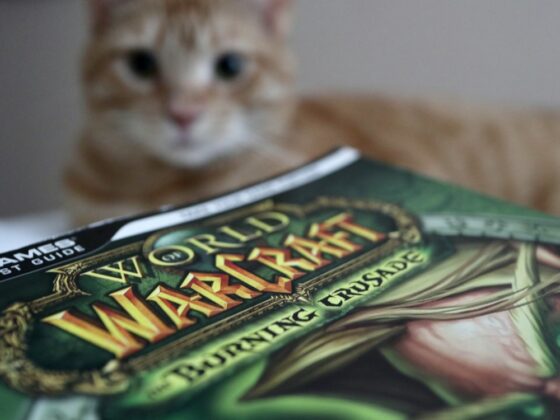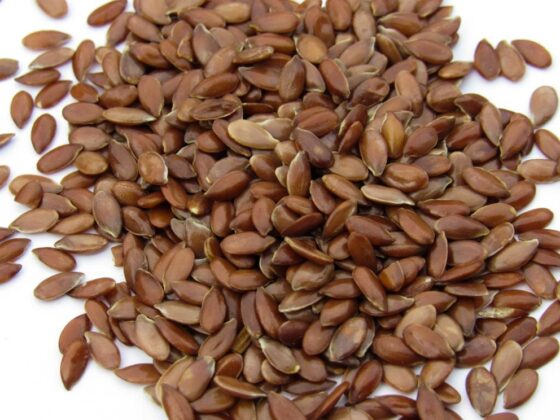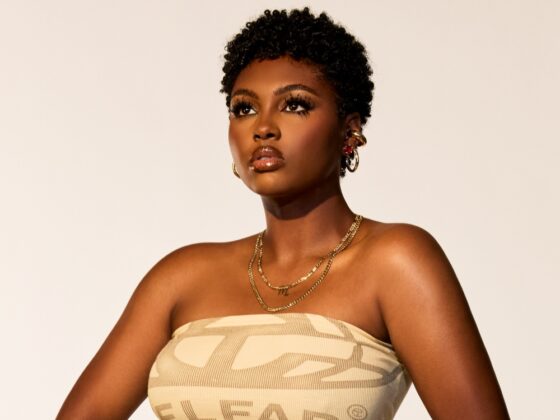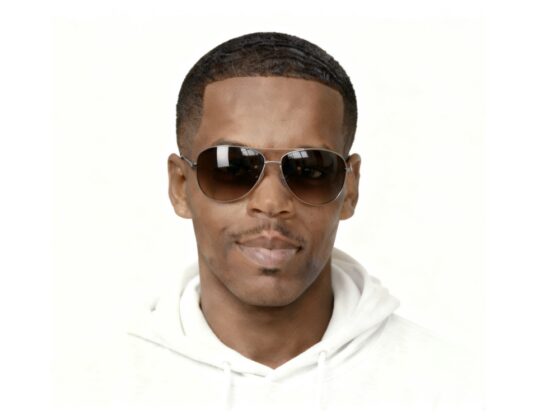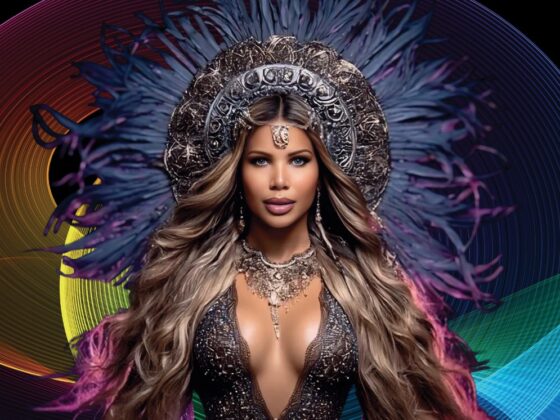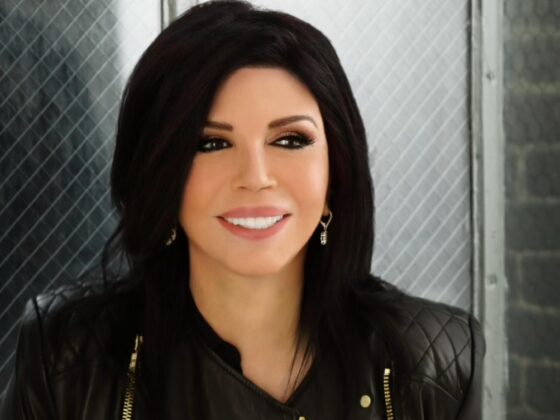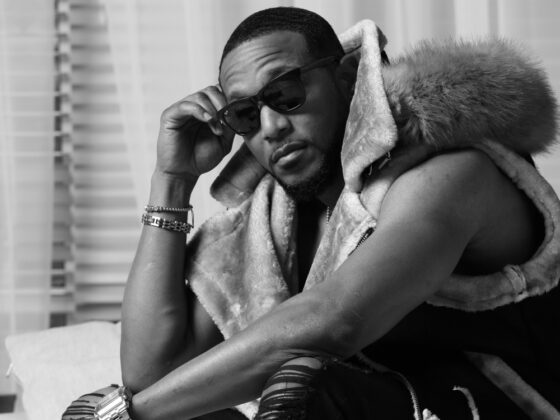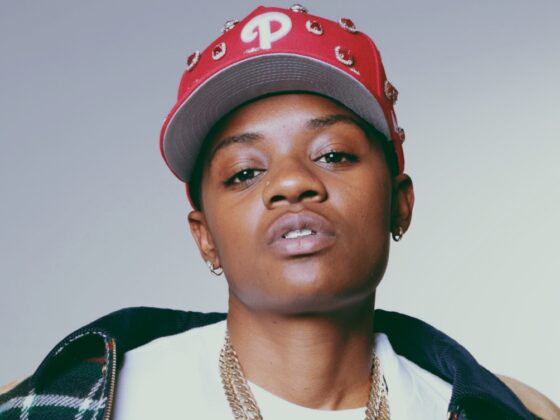Living Legend. Timeless Icon. Anointed Luminary. Class Personified. These are just a select few apropo terms that most suitably describes 2x Grammy and Academy Award winning singer-songwriter-actor, Peabo Bryson.
Parlé Magazine was recently afforded the honor of sitting down for a friendly tête-à-tête with the Greenville, South Carolina, native, fittingly dubbed the King of Balladeers. Check out our full Peabo Bryson interview below:
Parlé Mag: First things first, a huge congrats is in order regarding your 50th anniversary in music. How does that feel 5 decades later?
Peabo Bryson: Well, for me, 5 decades is quite a long time. You don’t think of it in terms of time when you’re in it. You’re doing it when it’s happening. You just do what your inherent nature tells you to do. I chose this job, this profession, because I saw something when I was my son’s age, around 7 and a half. I saw artists who look like me in the height of segregation transcend racism, politics, religion, and every other social malaise this country was suffering at that time. And galvanized people – had everybody standing, saying the same thing, giving each other the same message, not worrying about who’s what and where’s what. It was the most amazing thing I’ve ever seen. And it’s what I now do – it’s my goal. Every time I go on stage to recreate that one moment, to fellowship with everyone who has showed up in that arena, every single night. And it happens the same way. That was my purpose. And I do it, I do it well, and I do it gladly. I think I’m actually doing the work that I’m supposed to be doing.
Parlé Mag: To commemorate this milestone, you semi-recently kicked off your Golden Touch tour. What exactly can audiences expect from this current tour?
Peabo Bryson: Anyone who shows up at a concert at this particular point can expect to fellowship – music fellowship, social fellowship. I was gifted with the wisdom of the iconic Cicely Tyson, who taught me about how to treat an audience, how to make them a part of what you’re doing. At the time, I asked her to come and look at my program and give me her thoughts. I was pretty much – I wouldn’t say afraid of my audience, but I was very careful not to ask or demand too much from them. I didn’t want to demand anything for fear that they wouldn’t show up the next time my name was on a billboard. So, she helped me get over that by telling me she had to watch my program.
That went really quite well – actually, exceptionally well. She said that when I asked her what she thought, she said, “It went really well, but what does that mean?” And she said, “Well, you had them, you didn’t do anything with them.” It was such profound wisdom expressed in such a simple way.
I asked her to come again, and she came again. And she said, “I’m pretty sure that you are a progressive thinker, and you’re very well traveled. And all of that – I don’t have time to keep coming to your program. So I’m just gonna tell you: Your audience is waiting on you to tell them what to do. Tell them what you want them to do.”
I didn’t get that. I wasn’t about to demand anything of my audience. From that moment on, my poor audiences have been attacked by me. I’m coaxing them in ways – and it’s all very civil and all very congenial and all that. But I do go after them. And I ask a lot, demand a lot, and we have a ton of fun together.
So if you come see me perform, that’s what you’re going to get. You’re gonna become immediately a part of that. At some point during the program, we’re gonna fellowship, and I’m gonna break that plane that separates me from that audience. I’m gonna go out there. We’re gonna do it together. I want to be among you when we do it, or it’s not quite the same thing. My program is authentic.
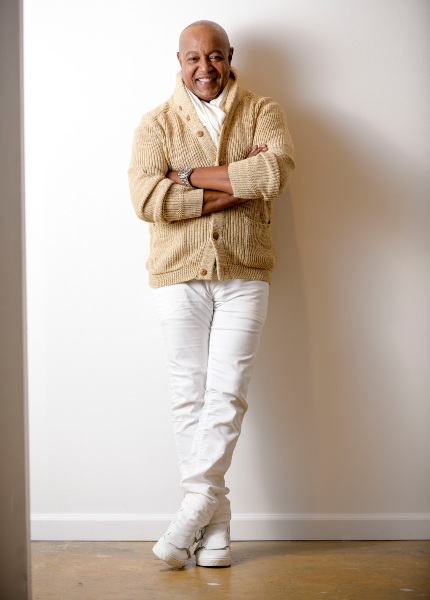
Peabo Bryson: The timing of the new CD project is an indication of my core beliefs, which have brought me – not just me, but my culture – through some pretty tumultuous times. And, it’s brought me to this place. It’s how I survive. It’s how I’m still here. And what this project does, it represents a culmination of all that I’ve experienced in my journey up until this point. There are things that I think about, things that I know now, that I did not know before that I’m always willing and open to share with anybody listening.
If you have something to say, say it. And if you write lyrics or you compose a piece of music, you should have something to say in that music. The composition should make you feel – if it doesn’t, there’s no point to any of it. There are things in this political and social climate that are difficult to say and hard to address without offending someone. I think people are basically a bit too sensitive, and the truth shouldn’t hurt that much. The truth should just be the truth. It needs nothing added to it or nothing taken away from it. And, that’s what this music is all about. It’s very honest. It’s very open.
I hope that all my music up to this point has had those things running through it in some way, shape, or form. It’s just that it probably means a bit more at this point in my life. Age brings with it a certain perspective, and I’m not immune to that, nor is my music.
I’m thrilled that Jimmy and Terry feel obliged to work with me at all, because they’re maybe one of a half dozen people that could ask me to do something in a way that I wouldn’t do it before. They would challenge me in a way that not many others will challenge me. And, I like that aspect of our working together. And I’m there for the duration, and I like their lack of ego – that everybody checks their ego at the door. And whatever you can contribute, you contribute. And, we do a most favored nation standard where we share all the credits together because it is a collective effort. And, they are gracious enough to do that because they don’t have to. They don’t work for money. They only work with people they want to work with at this particular point.
We are a lot alike – we have a lot of like characteristics as human beings. And we kind of hope that we are – we’ve evolved a great bit and that we’re still evolving. And if we can help others evolve on a human level through music, then all the better. We’re all in with that concern. That’s the thing that we all have in common. So, we’re all on the same page and the same frequency when we’re doing what it is that we’re doing. The thing I feel about working with Terry and Jimmy is gratitude.
Parlé Mag: How does this new body of work either differ from and/or compare to previous bodies of work and efforts?
Peabo Bryson: I’m not one of those people who is willing to abandon his identity in some kind of way. I won’t allow my authentic self to be hijacked by anybody. And, they’re not trying to do that. It’s different in that it sounds very current – the production’s very contemporary. But I still get to sing and be me. And we follow the basic rules of music – this progression where we build block by block, and then every song gets bigger and bigger and bigger. We follow all the basic rules that we know to be proficient and effective. And it builds and builds and builds and builds, and then there’s a payoff.
You may start off sounding a little bit slick and a little bit urban – a little bit more urban than you’re accustomed to hearing me, but it works out. There’s a perfect blend between new urban and classic soul embracing, I think. That’s the best way to describe it.
Parlé Mag: If you could collaborate with any one artist, living or dead, who would it be and why?
Peabo Bryson: I don’t have that many regrets, but I regret that Aretha Franklin and myself didn’t actually get to record anything together. We were great friends, and we worked together quite a bit, but never got a chance to record together. I still would love to share a song with Sade. And I think I would…let’s see. I would have loved to do something with Whitney Houston, and I would still love to do something with… and, miraculously, Gladys Knight is still alive.
Parlé Mag: If you could play any venue in the world, which one would you choose and why?
Peabo Bryson: Out of all the venues that I’ve played, I’ve probably enjoyed the Viña del Mar in Chile. It’s beautiful. It’s very natural – it’s around boulders and natural boulders and rocks and all that. It’s just kind of perfectly built into this outdoor amphitheater thing that’s naturally built into the terrain and the geography of the area.
I like the meaning of it and what it means, and the history of it. It’s been around for such a long, long time. And I like how all the 200,000 people know what’s coming, and they know what it is. If you’re in the competition there, it’s a songwriters’ competition. You’re doing a song that has been around for quite some time, and you sing that song every day in a competition, and it gets down to 3 contestants and then there’s a winner. The winner gets this great prize for the songwriters. I like that. I like that it’s not a competition between the artists, and you got artists from all over the world come there to Viña del Mar to do it. And, it’s a country like Chile where everybody’s musically talented.
Everybody can play or sing or dance – all of the above. I like that. And, I like that everybody knows every song because the only songs that you perform are songs that have actually won at Viña del Mar at some point in time. Except for me – I did not win one of those songs, but I did get the song that came in second quite a bit, so they allowed it. Of course, I won, but that’s…
Parlé Mag: On a more serious note, are you happy with the current state of R&B?
Peabo Bryson: I’m not sure that the current state of R&B is R&B. What are we calling that? There are so many different versions. I mean, which version do you mean? Which version of R&B do you mean? Are you talking about classic R&B? Or are we talking about fusion R&B, or are we talking about blue-eyed soul? What are we talking about here?
I kind of look at it like I look at being born Black in America. What I am has changed quite a few times. I’ve been Afro-American, I’ve been a Negro, I’ve been colored, I’ve been a bunch of other things, and it’s kind of like R&B, isn’t it? But these are all labels that don’t mean anything.
To me, R&B is: if you sing a song or write a song or perform a song, and you touch my soul with how you do your performance and what you have to say, and what that music makes me feel – then that’s R&B to me. If you have a message in there that’s going to assist me in navigating the world around me, that’s R&B. If you have written a lyric that’s going to help me navigate the new complexities of relationships in today’s era, and if you put that to some really good music, or you write something that just makes me forget about whatever my difficulties or troubles might be at that particular moment – whatever bothers me. If you make me feel better, if you make me feel inclined to procreate – then that’s kind of what R&B is meant for us in some ways. It’s to remind us of what we are, is it not?
So it depends on what your personal perception of R&B is, isn’t it?
Parlé Mag: What do you feel has and will continue to be the key to your longevity?
Peabo Bryson: The same things that brought me to this moment. I’m not allowed to change now. One is I’m a man, and men don’t like change. But, that’s not what keeps me on my path. The same faith that brought me to the music industry and kept me there for 50 years is fine by me for now and for all the rest of the days of my life. I found in my work, I found God’s favor. And I never want to be far from it.
Parlé Mag: Do you have any other outside additional future aspirations, maybe even completely away from entertainment?
Peabo Bryson: I don’t know if you would call writing… I have a lot to say. I look back at my time on this good earth, and I look back at my time in this industry, and I’ve been blessed with a unique perspective and opportunities to see the world up close and personal. Places that as a kid, I could only look at the globe and dream of what it might be like to visit there or what the people were actually like.
I’m probably the only American artist – especially who looks like me, for sure – who has actually played on the Shrine at Hiroshima. And, sat and broke bread with the descendants and some of the victims and some of the descendants of that happening. And I sat at those tables with them, broke bread with them, prayed with them in their temples and their churches. And when I sat down with them, I felt no hostility from them. I was honored to be there and all that. And, it enhanced my spiritual journey and life and music.
I have so many things to be grateful for in those 50, 60 years. And, I kind of see myself as a sort of ambassador of sorts. It’s provided me with a unique bird’s eye view of what life is like in other cultures. And once you immerse yourself in it, it changes you for always.
Travel is perhaps one of the greatest educations an individual can experience in his life. Reading about something is not – I’m a voracious reader, and reading about something is not nearly as comprehensive or impactful as actually being in the midst of it. Being immersed in it yourself where you are not a bystander. You’re one of the players.
You’re not a bystander at all. As a matter of fact, from my perspective and my position, you become the protagonist in any scenario.
Parlé Mag: What is your favorite part about this line of work?
Peabo Bryson: The power of music over people. How they think, how we think, what we think, how it somehow brings out the best in us when we’re not very hopeful, and we’re not feeling very warm and fuzzy. Music can change that. I mean, it’s like, if you’re nursing some emotional wounds and you hear the blues, and you realize that it’s a lot worse for somebody else. Somehow you walk away – when anybody can walk away from a song or performance feeling better than they did before they came – you know, I’ve done some really good work.
Or if you can watch and listen to me sing a song that speaks directly to you and you get misty-eyed, I’ve done some really good work. And, I can’t begin to express to you how fulfilling that is for someone like me.
Parlé Mag: What advice would you have for someone who wants to follow in your footsteps?
Peabo Bryson: Find your own authentic voice. Be yourself. And, never try to be like anyone else. Unless you were taking some aspect of who that person is – some characteristic of that person – and adding it to your own personal characteristics of the authentic you you’re trying to create.
I was asked this question by Rolling Stone once, and I wrote this long, drawn-out thing in several paragraphs. And Prince came up behind me and he was asked the same question, and he paraphrased everything I said – in all of those words – with 2 words: “Be different.”
Parlé Mag: Looking ahead, say 5 years, maybe even more…
Peabo Bryson: I’m starting to really like this writing thing. Writing is one thing, and being encouraged to write a book of essays is something totally different. It’s an outlet – emotionally, spiritually, socially, politically, and any other way – and also just intellectually, it’s an outlet for me very much like music is. I think without music that I would probably have become a raving maniac long, long ago. Music is therapy. Writing for me now is an added kind of therapy that I get, and there’s a profound amount of relief from having said what’s in me to say without being trapped by anyone else’s edicts or restrictions. I like that. It’s very free.
And also, now I see why people do it. And now I go back to all those great authors that had such a profound effect on me when I read their work, and I also remember reading all the biographies and some of the prose and essays from great entertainers like maybe the greatest entertainer ever – Sammy Davis Jr. I read that book “Yes I Can.” It had a profound effect on me. And I should have understood what writing was, being a voracious reader.
I have friends I met on Twitter or some other place who are really great authors, and they have a certain respect for me and my work. So, that means that I probably should have started writing a long time ago.
Drawing was the first talent that I took seriously, and I don’t do it much anymore, but it’s something I want to get back into. It relaxes me, and creating these images of things that are now seen and touched, and cultures that I’ve now immersed myself into and have a great understanding of who and what they are. And, I can write about my takeaways from having had those up close and personal experiences. And also, there are images that I would want to create.
Well, you know, life is a lot more metaphysical than anybody wants to admit. People don’t talk about it, but certainly my life has been. All of that is just me.
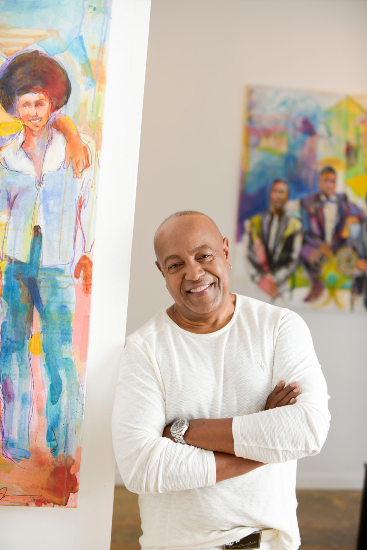
Peabo Bryson: Let’s start with “Tonight I Celebrate My Love” – the great Roberta Flack. I still have no idea why she chose me out of all the people she could have sung with, especially having been partnered with perhaps one of the most unique and greatest male forces ever, and that would be Donny Hathaway. I think that their duet project together is perhaps some of the most essential duet work ever done. And, I just learned how to do a duet from working with Roberta.
My first duet was not with Roberta Flack – it was with the great Natalie Cole. But I learned a lot about what not to do and what to do, and how to play to my duet partner’s strengths and weaknesses equally. I learned that from Roberta. And, that made all the duets that came after that point so much better.
There’s a certain kind of connection that you make – whatever love you do have for your duet partners gotta be evident in how you musically and vocally interact. It’s gotta be authentic, and it’s gotta be at a pace and an up and down crescendo that tells a story. And, you want the listener to feel like they’re watching two people who actually love each other in some way, shape, or form. Once you have that, that leaks over into your vocal performances. And, that’s what makes those songs special. You can’t orchestrate those things happening in your life, but the Flack duet put me in a different arena that got me noticed in that genre.
So maybe some of my friends, old friends like Jay Landers, who was invested in the film industry quite a bit because his father, Hal Landers, was like king of the B movies – he was aware of the Disney project “Beauty and the Beast,” and talking to his friends, he just raised a question. At the time he was working for A&R on that label. So he asked an interesting question of his friend: “Well, is there any kind of great music involved in this new animation?” And he said, “Funny you should ask. There’s this duet song during Beauty and the Beast.” It was Jay Landers who decided to make that really happen. I didn’t even know about Celine until we were getting ready to record it.
And, the thing you have to understand about the Disney songs is that they don’t come with instructions. Those songs only get what you give them. And, whatever you don’t give is not there. Whatever you do give is what you get.
We didn’t know each other. She wasn’t sure of who or what I was… so there’s this glass between us and we’re looking at each other and trying to read each other for the first time. And when she realizes that she’s not gonna run away and leave me, and I’m not gonna run away and leave her, then you can just smile at each other, relax, and then you can do that thing that I talked about just prior to this. And you fall a little bit in love with your duet partner, and you get it done. Nobody’s gonna suggest that you approach it any way other than the way you’re approaching it. Nobody is gonna question anything that you do. It is what it is. It is whatever you give it. Everything after that is just a copy.
“A Whole New World” – Disney doesn’t repeat. Unless something didn’t work out well for them on some project. It’s just one of their rules. So they started trying to put these other people together, trying to get these other artists. When we start talking about “Beauty and the Beast” to “A Whole New World,” you’re talking about difficult songs to sing. You can ask Gloria Estefan to sing one of these songs, but you can’t ask her to do it with actual vocal roles, which they were trying to put that combination together. And eventually, they had to come back to Jay Landers again and see if we could do something different. And then there was the availability of the great Walter Afanasieff to do the music and Liz to help us in terms of getting the best vocal performance that they could get.
You can’t script it. All of these songs that you mentioned are part of my predestined fate on this good earth. That’s it.

